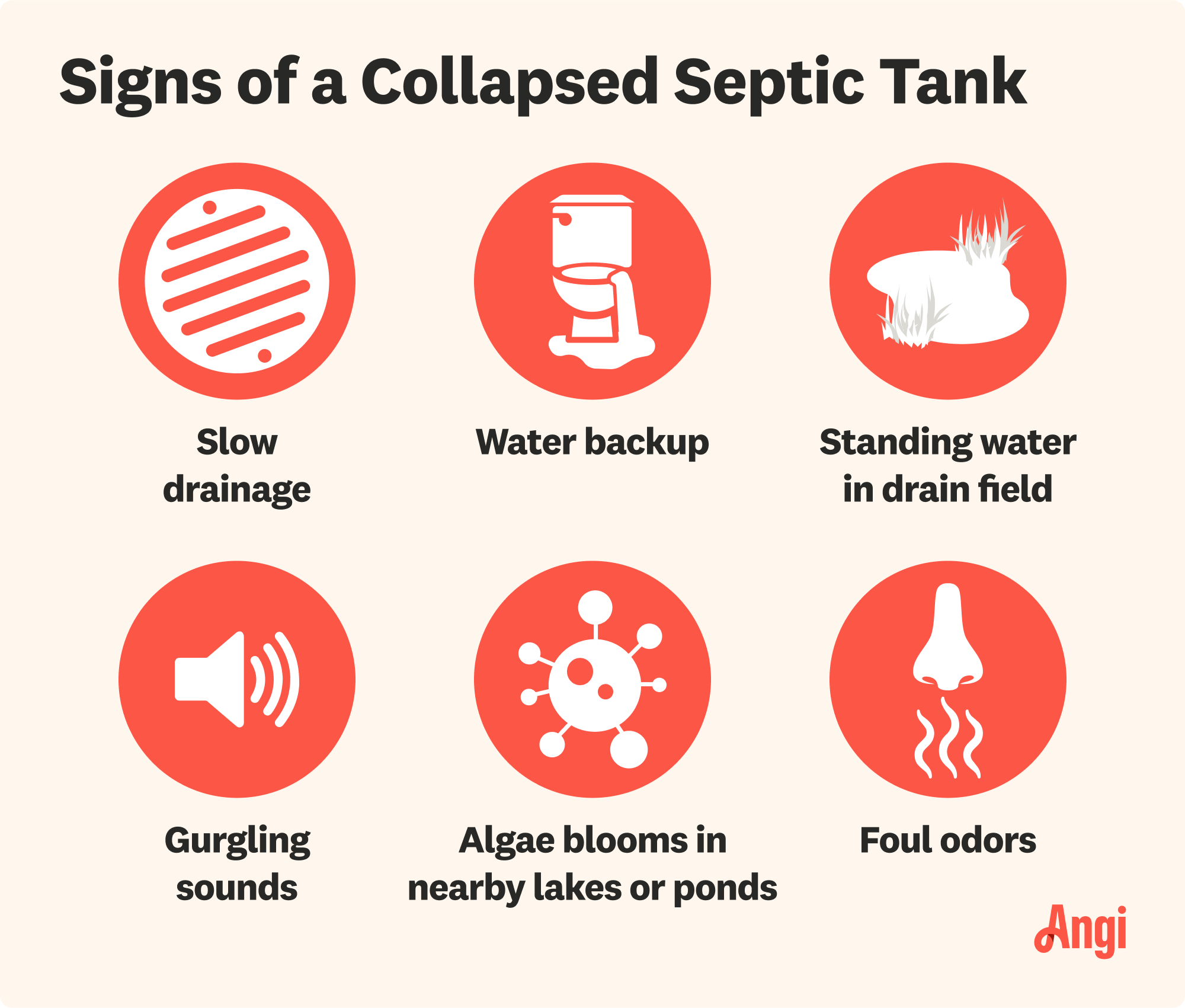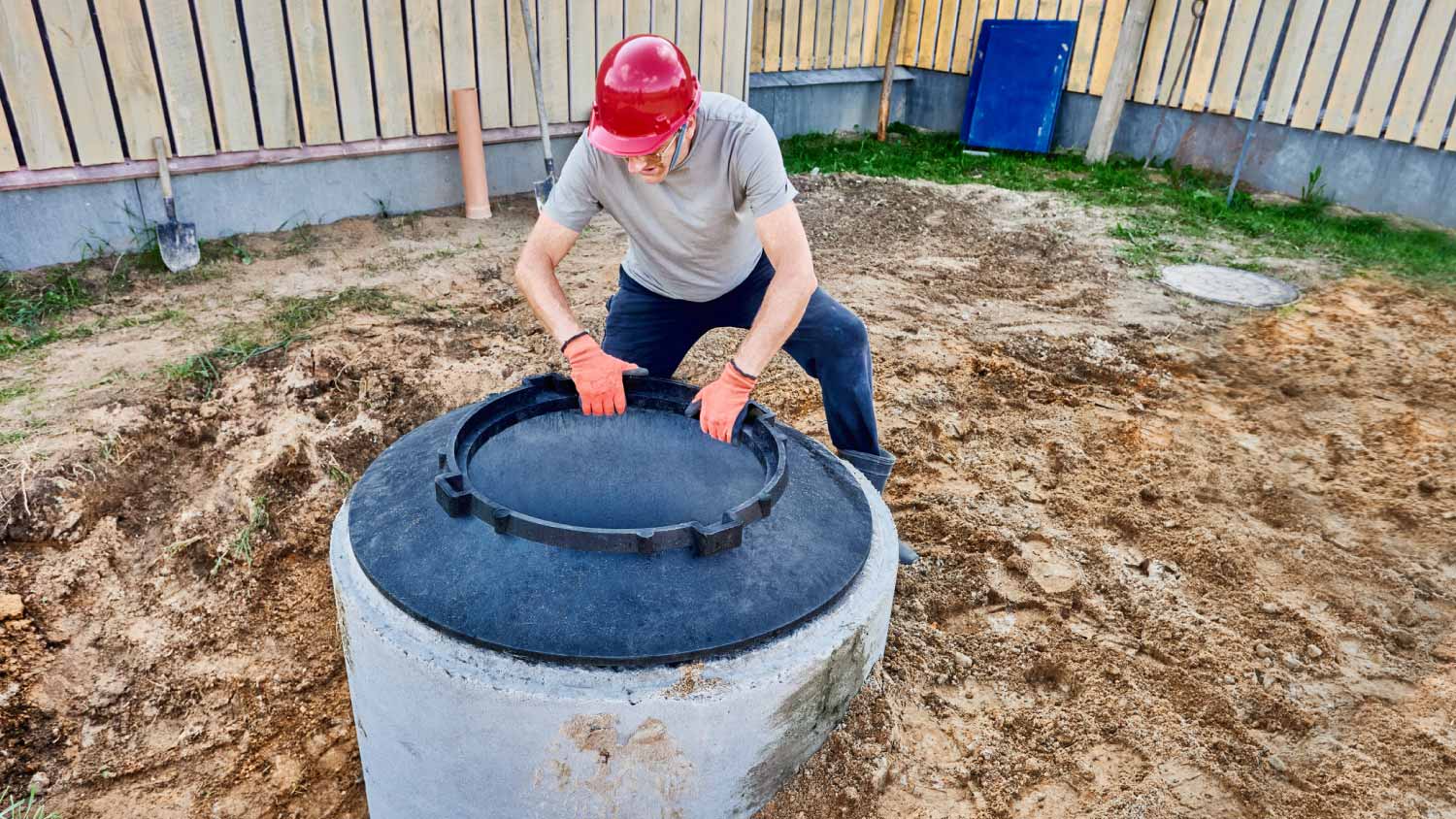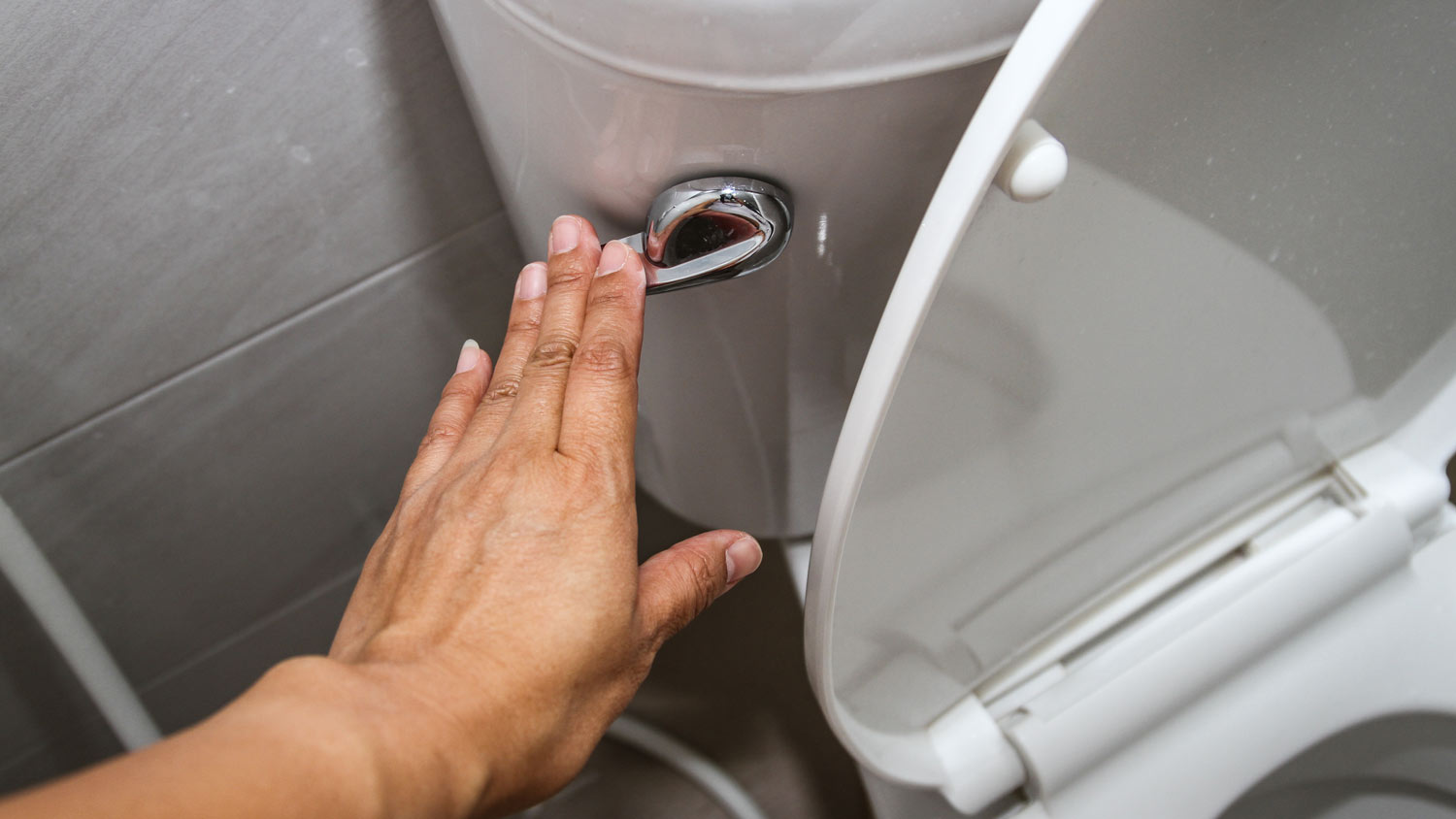
Get transparent sewer line camera inspection cost info. Learn what impacts pricing and how to budget for this essential home maintenance.
Avoid the stinky side effects and get this replaced ASAP


Using a collapsed septic tank poses serious health and home safety risks.
A collapsed tank can leak hazardous waste and flammable, toxic gases into your drain field.
Water backup, standing water in your lawn, gurgling sounds, and unpleasant smells are signs of a collapsed septic tank.
It stinks when a septic tank collapses—literally. Though you may be tempted to carry on using it in the hopes that everything will sort itself out, it’s a bad idea. Sitting on a problem like this can have serious repercussions to everything from your health to the safety of your home.
So, exactly how long can you use a collapsed septic tank before you replace it? This guide explains why you shouldn’t wait at all and teaches you how to spot a collapsed septic tank.

A collapsed septic tank is exactly what it sounds like: A septic tank that has fallen in on itself and can no longer function as it should. A septic tank can collapse because of age, damage, carrying too much weight, and overuse.
Septic tanks are essential for safely funneling effluent out of your home. Without a working septic system, a whole host of related issues can arise, so it’s better not to continue using a septic tank that’s broken in any situation.
"Effluent" is the term for liquid waste or sewage that has been treated in a septic tank or sewage treatment plant. You may also know it as "wastewater."
If you do continue to use a septic tank after it’s collapsed, here are all the risks you run.
Septic tanks break down waste and release flammable and toxic gases like methane and hydrogen sulfide as they do so. That’s not an issue if the tank is in working order, but if it has collapsed, these gases can leak out into the drain field and your home, where they’ll ignite or cause those inhaling them to fall ill.
In addition to the health issues that can arise from inhaling toxic gases, a collapsed septic tank will also leak into and pollute your drain field and surrounding bodies of water. Once that happens, wildlife and residents may accidentally come in contact with them and become infected as a result.
It’s no fun when a pipe is backed up or your sink simply won’t drain, but that’s the kind of problem you’re looking at the longer you wait to treat a collapsed septic tank.
A collapsed septic tank can also damage homes beyond just your own. Failing to remediate the issue before it starts to affect others can result in fines or legal action from those in your neighborhood.
The longer a collapsed septic tank is left unchecked, the more time it has to leak out into your drain field. Once there, it’s hard to control and likely won’t stay put, so the risk that it’ll spread towards your home and cause serious structural damage is high.

Are you unsure if your septic tank has collapsed or if it needs to be pumped? Use your eyes, ears, and nose to spot these clues before hiring a septic tank company near you to take a look.
If your bathroom sink is draining slowly—or not at all—or your toilet isn’t flushing, and you’ve ruled out all other potential issues, like a clog, this could be a sign that your septic tank has collapsed.
When you’re not using your sink or toilet, the last thing you want to see is waste or dirty water coming back up out of it. While backups can also indicate that a septic tank needs to be pumped, if you’re noticing this issue alongside others in this list, you might have a collapsed septic tank on your hands.
Unless it’s been raining, you should never find pools of standing water in your yard. But if you do, and it doesn’t smell great, that could be a sign that your septic tank is damaged and leaking waste into your lawn. In that same vein, waste is like a fertilizer and can cause your lawn to look especially lush and green. So, if you notice an aesthetic improvement on your lawn, but haven’t taken any action to make it happen, it’s time to give your septic system a closer look.
A properly functioning plumbing system won’t make a peep outside of the times when you’re actively using it, so if you’re hearing gurgling sounds on the reg, it’s a good idea to investigate further and make sure it’s not a problem with your septic tank.
Foul smells emanating from your lawn are not only unpleasant—they’re not normal. While it’s possible that it’s coming from animal droppings, take action if you start to notice it on a regular basis.
The bacteria found in septic waste can cause algae to bloom excessively into standing bodies of water. Notice the pond next door or the shore in your backyard lake is greener than usual? That could mean that your septic tank has collapsed and is leaking into them.
From average costs to expert advice, get all the answers you need to get your job done.

Get transparent sewer line camera inspection cost info. Learn what impacts pricing and how to budget for this essential home maintenance.

How much does a septic system cost in Charlotte, NC? Explore impacting factors, important add-ons, and how you can save money on septic system installation in Charlotte, NC, right here.

Need to know what sewer line replacement costs in Charlotte, NC? This guide will help you prepare to budget for sewer line replacement done by local contractors.

Need to know what sewer line replacement costs in Dallas, TX? This guide will help you prepare to budget for sewer line replacement done by local contractors.

Need to know what sewer line replacement costs in Houston, TX? This guide will help you prepare to budget for sewer line replacement done by local contractors.

To unclog a sewer line, you may need to access your septic cleanout. If so, you might wonder: How do I find my septic tank cleanout? Find out in this guide.